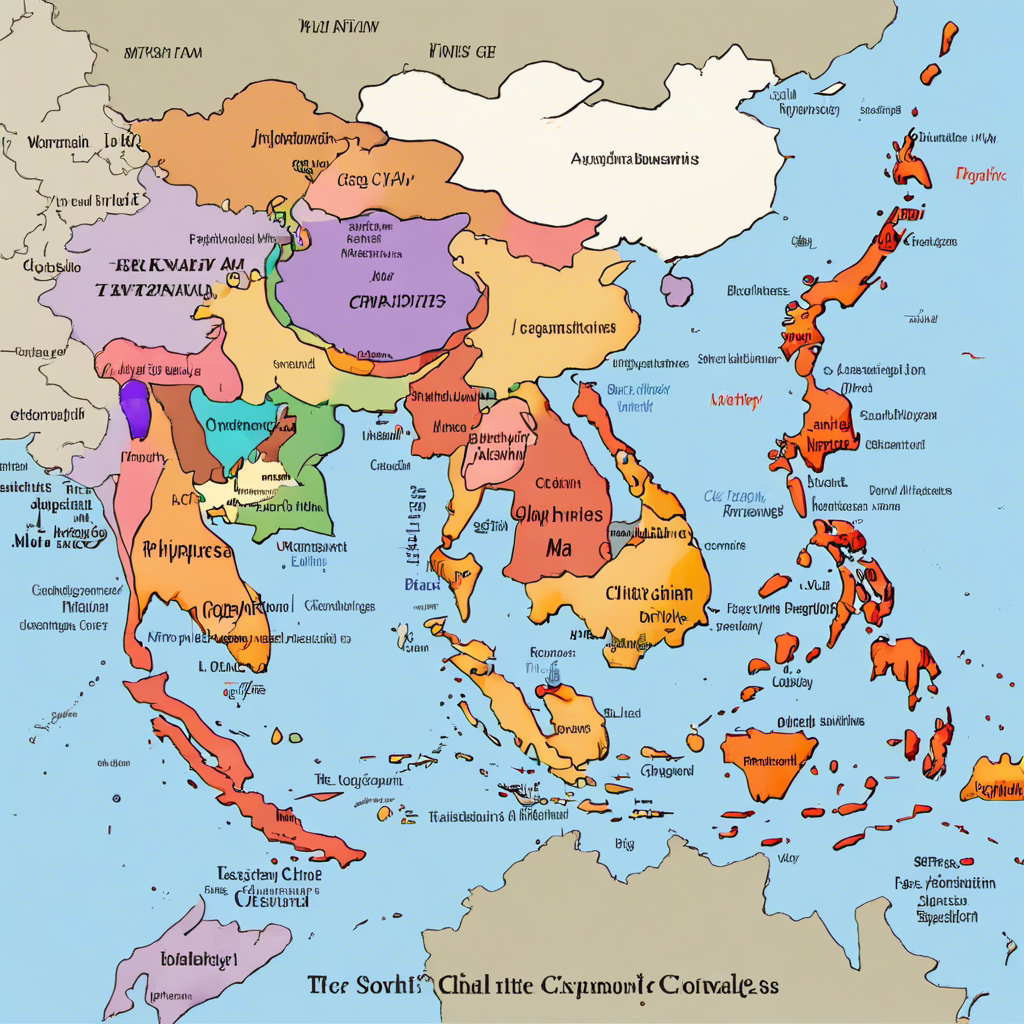The Philippines’ Business Community Divided Over South China Sea Conflict

Prominent Filipino business leader expresses concerns over government’s handling of tensions in the disputed waterway
The Philippines’ ongoing conflict with China over the South China Sea has divided the country’s business community. Teresita Sy-Coson, a prominent businesswoman and member of one of the country’s wealthiest families, recently voiced her concerns about the government’s approach to the escalating tensions. As the Philippines and China traded accusations of vessel ramming near Ayungin Shoal, Sy-Coson hosted a Christmas dinner and shared her thoughts on the matter. This marks the first time a top Filipino business leader has openly spoken out about the geopolitical tensions.
Sy-Coson’s Concerns:
During the Christmas dinner, Sy-Coson expressed her disagreement with the government’s strategy of publicizing every sea encounter and becoming an enthusiastic partner in the United States’ Indo-Pacific strategy. She advised the government to pursue more peaceful negotiations with China, emphasizing the need for dialogue rather than confrontation. Sy-Coson highlighted the importance of maintaining a close relationship with China, as the two countries are neighbors. She also pointed out that further tensions in the South China Sea could have negative implications for the country’s business prospects.
Business Community’s Perspective:
Sy-Coson’s concerns are shared by many Filipino-Chinese businessmen, who prefer peace, order, and harmony as conducive to a good business climate. Teresita Ang-See, the founding president of Kaisa Para sa Kaunlaran, a movement that promotes integration of ethnic Chinese-Filipinos into mainstream society, explained that unrest and uncertainties adversely affect business. She cited historical examples, such as the conflict between the Philippine government and Muslim rebels in the 1970s and anti-Chinese kidnappings in the 1990s, which prompted Chinoy businessmen to leave certain areas.
China’s Actions and Economic Impact:
While many ethnic Chinese businessmen understand that China’s assertiveness is a response to provocations from the US, Japan, and Australia, they condemn China’s actions in the South China Sea. Ang-See emphasized that China’s primary interest is in continuing its lucrative trade, especially with its neighbors. She pointed out that China has historically pursued commerce rather than imposing economic sanctions. Therefore, she believes this is the best time to give diplomacy a chance and let seasoned diplomats work towards a peaceful resolution.
Support for a Closer US Alliance:
Despite the concerns expressed by Sy-Coson and some members of the business community, other top business executives and tycoons silently favor a closer military alliance with the US to counter China’s aggression. A survey conducted in July by Price Waterhouse showed that 64% of CEOs surveyed believed President Ferdinand Marcos Jnr was doing well in terms of strengthening relationships with other nations. However, the economic data suggests that the Philippine economy is not heavily reliant on relations with China. Manila imports more from China than the other way around, and China accounts for barely 1% of all foreign direct investments.
Conclusion:
The Philippines’ business community is divided over the country’s handling of the South China Sea conflict. While some business leaders, including Teresita Sy-Coson, advocate for peaceful negotiations and maintaining a close relationship with China, others silently support a stronger military alliance with the US. The tensions in the disputed waterway have raised concerns about the potential impact on the country’s business prospects. As the government navigates this complex situation, finding a balance between diplomatic solutions and standing up for its maritime rights will be crucial for the Philippines’ future.

